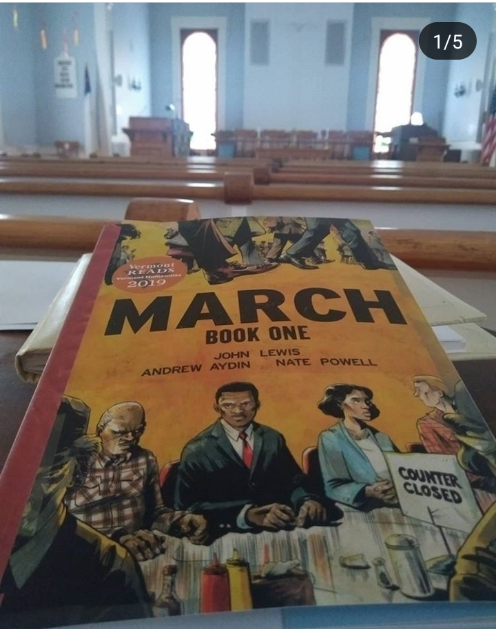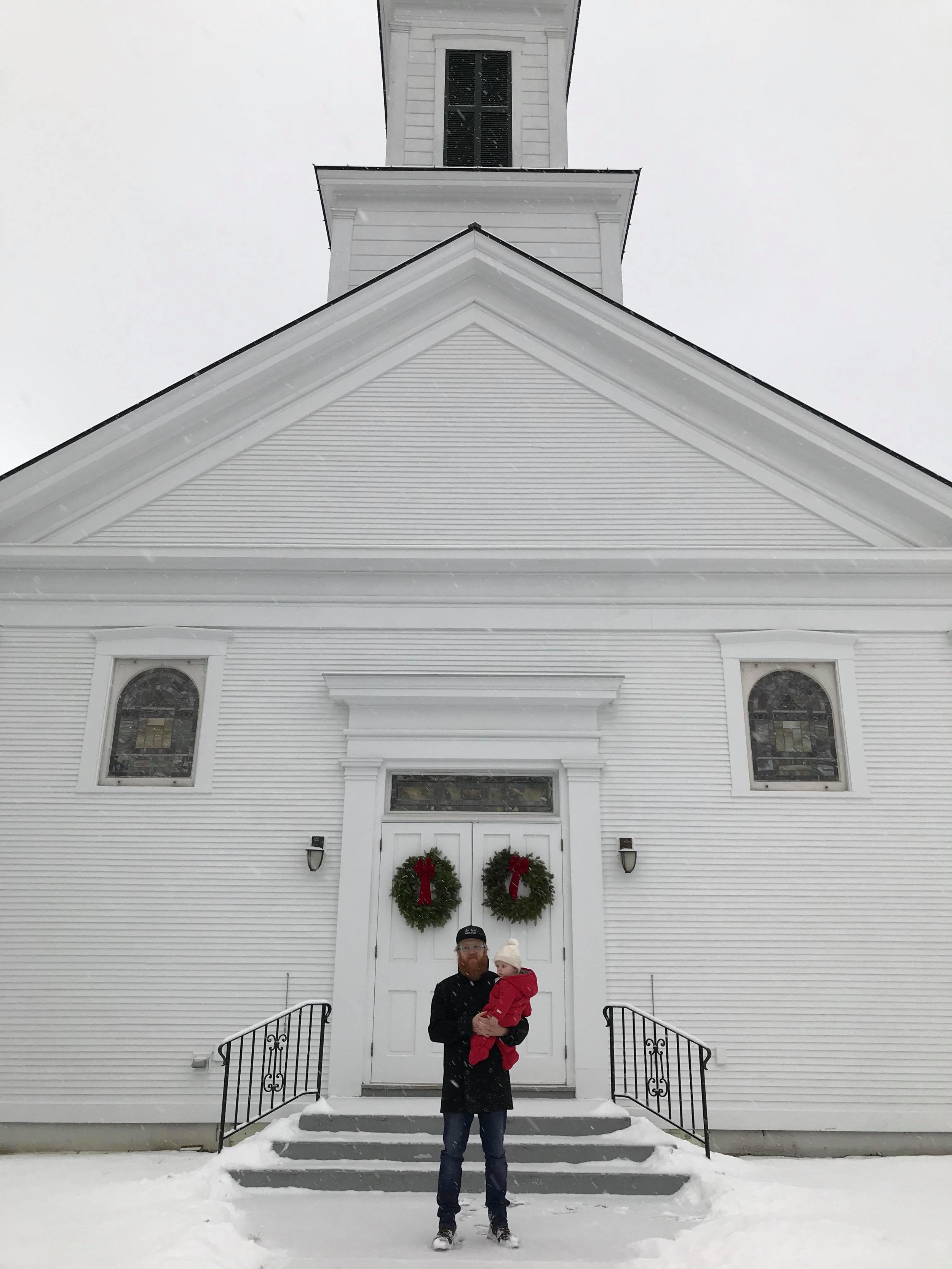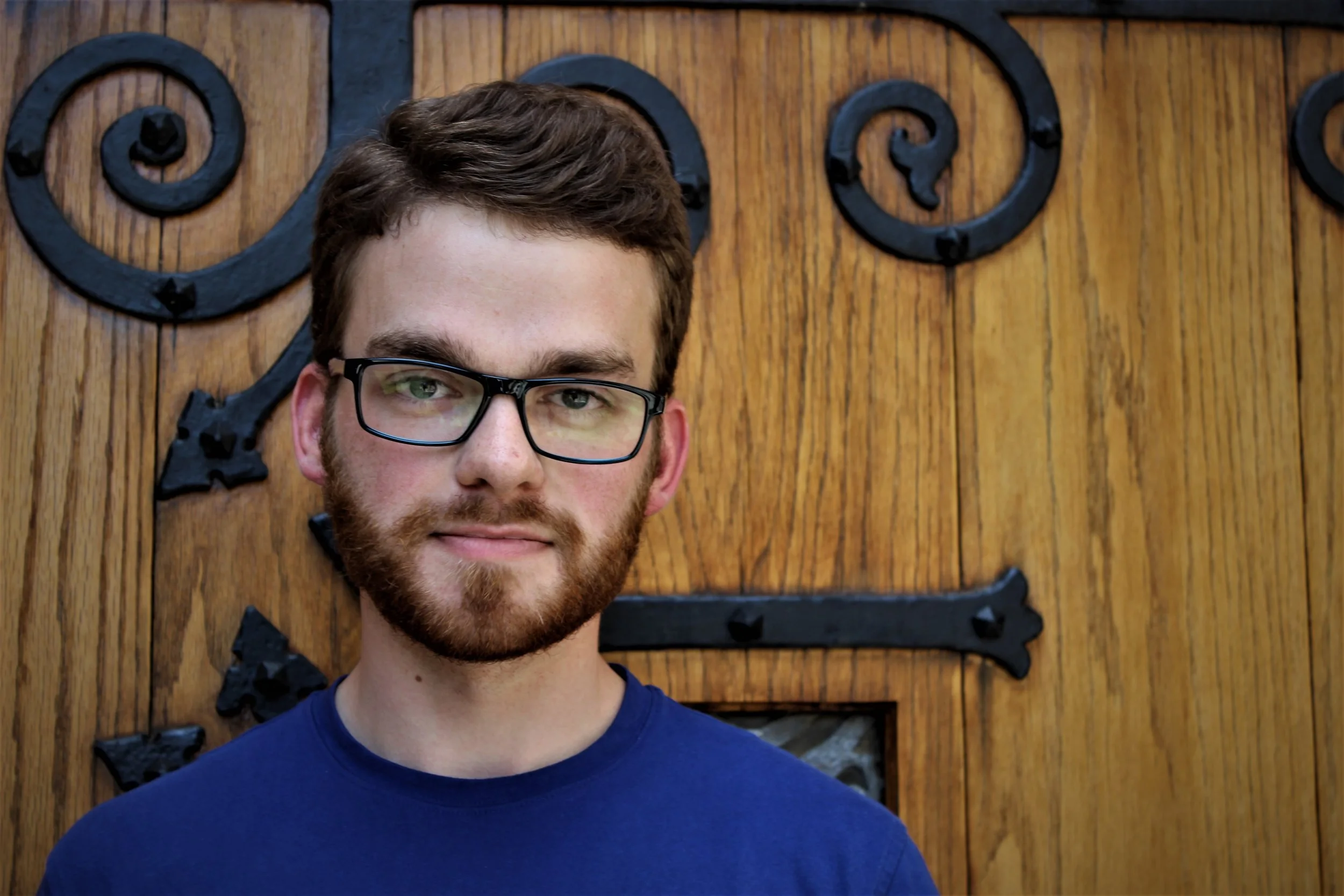The label of baptist carries with it many connotations. For my rearing in the rural south, the term was synonymous with red carpeted sanctuaries, red hot Vacation Bible School summers, and perhaps most prominently, red-faced delivered “hell and brimstone” filled sermons from the pulpit. Not until much later did I realize there were “other baptists”, and with them, other traditions that resonated with me more so than the aforementioned experiences of my adolescence. Part of one’s faith is remembrance and how one practices this both as an individual and as a community is essential to what is vital as passing on to one's spiritual descendants. While there are many respected fragile baptist beliefs worth mentioning, a rich tradition of dissent is often ignored. My hope is to engage and educate my future congregation about our heritage of opposition to unjust systems of “power and principalities” of this world.
Why is exploring a topic such as dissent beneficial to a faith community? Surely, baptists have participated and have no lack of disruptive church splits! While I want to acknowledge this occurrence within baptist life, I believe it is worth noting that in the spirit of baptist identity centered around the belief for the liberty of the individual conscience, disagreements and fractures are to be expected. For baptists, the issue of identity should not be determined by conformity, but instead, identity viewed as a call to be authentic and covenantal in meaning to one’s life. For those like British baptist Paul Fiddes, “It is not that we share an already-existing identity through establishing a common list of agreed items, but we willing identify ourselves with others who want to make or keep covenant with us because we catch an echo of their story in us.” The call of baptist as a collective is then to be receptive to not only the call of God on the heart and conscience but also to those around us. Because this is a covenant rather than transactional interaction, dissension should not be seen as a weakening fracture or a “social disease” but instead, the opportunity to experience breaking away from “absurd confinements in manners and morals, against the fatuous kowtowing of body or of mind, against the circumscribing of vision or of aspiration, against the evil that men do in the name of good, against indifference, insensitivity, and inertia.” Embodying this position has many forms as dissent is as different in scale and scope as baptists communities, however, to adopt a spirit of dissent both culturally and spiritually is to pay homage to a Christian praxis which has historically scorned creeds and doctrines.
Historian Edwin Gaustad warns those wishing to practice dissent not to fall into the category of societal nay-sayer or whiner. He offers an alternative take on what dissent is, saying it should offer “a fine edge; sharp, severe, and unyielding...a powerful if unpredictable engine in the service of a cause. ” For baptists; who are those in our history exemplifying a spirit of dissent? One need only look at baptist beginnings and nonconformist founders John Smyth and Thomas Helwys. Smyth would administer a self-imposed believers baptism upon himself, seeing this as being essential to authentic conversion while Helwys, leaving Smyth in Holland to return to England, would pen a defiant letter to King James I reminding the King that he too was only a man and not God. From these two individuals comes a floodgate of what could be labeled as baptists “other.”
Writer Kathleen Norris in her work The Cloister Walk offers a name for those practicing dissent by labeling them as “necessary others,” linking them to the prophets of the Hebrew scripture. Dissenters and necessary others gift the masses with difficult messages and questions while often experiencing hostility and discrimination in the process. Baptists in history have been no different. “For being ‘other,’ Baptists were often branded as heretics. Ostracized and persecuted, they were frequently banished, jailed or beaten by order of Christian governments.”
For those like Smyth and Helwys; what would cause an individual and a faith community to act in such a way as to invite the negative attention of governing bodies upon them? In other words; why start trouble? I purpose that for Christian dissenters no other reason is as adequate as that of God’s Holy Spirit demanding such. The Spirit being an expression of God’s character accessible to humanity offering the purpose for one’s life on earth. In the words of James McClendon, Jr., “The Spirit is missionary; the Spirit provides for each disciple; the Spirit is gathered church.” It is with McClendon’s view of the Spirit and Christian mission which I see as rooted in dissent. The life and mission of Christ was to expose a way of life contrary to the rule and power of empire. Jesus was a missionary to everyone, both in and outside of his Jewish faith. He brought a message that preached practice over theology, often starting sentences with You’ve heard that it said...but I tell you… Jesus through his teachings shared with those he encountered that the Kingdom of God had come near them and this message ran in contrast to what people were currently being told. Instead, McClendon suggests that mission be experienced as a move toward ecstasy, and believes this mission of the Spirit draws all of humanity and creation to “not conformed one to another, but at one with another in the oneness of God.” To live a life of nonconformity is a direct call to dissent to any laws and norms which does not bring all of creation back to God. The Spirit’s mission can be viewed as a continuation of God’s missionary process for reconciliation.
While the history of the early baptists points to dissension as a marker of identity, dissenters, iconoclasts, and renegades are found in other spiritual flocks. McClendon again offers an aspect of the Spirit’s mission as accepting partners. Partners in dissent? Sound like a oxymoron, however, baptists holding tightly to their belief of the priesthood of all believers should see everyone called to God’s mission of dissent. This work then becomes a partnership of both neighbors and God. Again, the life of Jesus Christ is seen as the incarnational completion of God’s mission of disruption. A mission where dissenters are asked to participate fully in the life of the world. Dissenting baptist, like the late Will D. Campbell, understood the priesthood as extending to every believer. Once asked by an interviewer about the statement he made in his work Brother to a Dragonfly of his desire to only be a preacher and if he viewed that work as his vocation (Campbell became well known for his work during the Civil Rights Movement concerning racial reconciliation, he only ever occupied one traditional pulpit in his life), he answered, “Sure it still holds, but I get nervous about the word, ‘vocation.’ My vocation - if you mean ‘calling’ - is no different from that of any other baptized believer. My vocation is living out the drama. Dissenters in the likes of Campbell aren’t so much the cause of drama but are called to respond to the drama that they see in the world around them.
Lastly from McClendon, he reminds those who have gathered together that “God’s action is not confined to gathered congregations. “There is also history’s crashing judgment; there is also the prophet’s manic word; supremely, there is that one life who is Life itself.” Yet, something special happens when through God’s missional spirit acts are carried out through the revelation of God’s ekklesia or church. Accepting the Spirit’s mission of dissent inside “the gathered community, for all its frailty and fallibility, will become the Spirit’s agency for the world mission of the gospel” is to acknowledge like the ancient church of Jerusalem, Antioch, and Rome their and our shortcomings are supplemented by the active means of the Spirit to accomplish God’s mission in the world. The mission of God’s Spirit accompanying the gathering of rejected misfits, which is the Church at its best, then becomes not a place of harmony but one of healthy friction reflecting an image of God’s kingdom attainable now.
It has been preached from baptist pulpits that there is no “Baptist church only Baptist churches.” The autonomy of the local church is a cry of dissent to the idea of the state established church. With baptist churches being comprised and self-regulated by their congregations, one’s ability to strive for agreement and solidarity becomes the default for those living in community with one another. After some time the virtues and positions of a few become the virtues and positions of all. All this is disrupted by the Spirit in the presence of a dissenter. Gaustad uses the term “misfit” as a label for dissension. “Churchmen fear the schismatic and theologians abhor the heretic, but the misfit is repugnant to all.” He continues,
Awkward on both sides, to be sure. The misfit himself would find life much smoother if the melting pot really did homogenize all. Yet, to allow oneself to slide gently into the absorptive mass may be to forsake all sense of identity and integrity. Accommodation to the surrounding smothering culture may mean death, at least as far as corporate continuity is concerned. A treasured heritage, a religious thrust, a way of life - these may all be lost. A genuine counter-culture seeks not the preservation of individual eccentricity but the survival and renewal of common life. Assimilation could make life simpler; it could also make it pointless.
Until now, this writing has focused on the explicit need for dissension in baptist life. Moving forward, I will address in detail some of those whose actions caused them to be labeled as misfits by either their religion or society.
One cannot talk of dissent within a baptist context and not mention Puritan minister turned baptist Roger Williams (he would later embrace the faith of a “seeker”). Williams would strongly push for the separation of church and state by denouncing the Church of England’s involvement with the American colonial churches. He would openly debate the prominent clergyman of the Massachusetts Bay Colony, John Cotton. The two would exchange barbs on a variety of interpretations, one being the concerning of women wearing veils inside the church. However, Williams did not only speak out on matters pertaining to the church. “Williams was especially troubled by the use of the Christian religion to do a very un-Christian deed: namely, depriving the Indians of their own property without due compensation or negotiation. For five years Williams acted as the defacto dissenter to those in power in Massachusetts Bay. Finally, his constant pestering saw him exiled from the colony in the Fall of 1635 for sharing his rebellious teachings and opinions. In 1636 Williams and those who followed him settled on a piece of land purchased from the local indigenous people in what is now Rhode Island. Williams designated it a destination distressed of conscience. This land would become a place that welcomed all religions and those who were dissenting misfits of the new world among them labeled Antinomian Anne Hutchinson. While Williams actions to some, certainly those like Cotton, seemed divisive, Williams push for the liberty of conscience and sought in his desire to make all peoples free and equal. In one of his writings,
Williams raised the question of how the English would respond if Jesus ‘were present here at London.’ If asked which religion Jesus would endorse, each citizen would shout for his own option to be chosen. But then if Christ should be asked about what weapons he would provide to that religion for which Parliament ultimately voted, all England would learn that no weapons of steel would be provided, only the instruments of persuasion (not coercion) and love.
Williams would continue to be the voice of the necessary other for the rest of his life, condemning slavery in the early 1650s and holding varying positions of influence in his newly chartered Providence Plantation.
One of the most famous letters of dissent every written is one of the most revered pieces of Civil Rights history. Martin Luther King Jr.’s Letter from Birmingham Jail was a national call to the attention of the systematic oppression being experienced by African Americans of his day (and long before). While many associate King’s works with his activism in the 1960s, King’s motivation to action, expressed poignantly in his Birmingham letter, came from his black baptist heritage. King was considered to be part of black church royalty with his father being the pastor of the prominent Ebenezer Baptist Church in Atlanta. He was in both public and private schools growing up before receiving admittance into Morehouse College. From there he would attend both Crozer Seminary and Boston University in his pursuit of theological education. Although King was assured to follow in his father’s footsteps as the next pastor of his family’s church, King would only ever hold an associate pastorate there as his engagement around Civil Rights became his life’s work. King’s dissent would take him to the public square. After receiving the Nobel Peace Prize in 1964 the following year, “in 1965, almost alone among Black civil rights leaders, he made public his opposition to the Vietnam War (this was two years before Muhammad Ali would refuse to serve in the armed forces). King would speak out against other forms of injustice taking place, famously drawing attention to the Montgomery bus struggle in the late 1950s. While King’s voice was at home in black churches, his work around social issue gained attention. King had read the writings of another baptist dissenter, Walter Rauschenbusch, and come to embrace similar thinking around the concept of the social gospel movement. The timing and brilliance of King saw a convergence between two worlds take place.
Although the social gospel churches had sometimes become centers of social amelioration, providing counseling, fellowship, clothing and work for the down-and-out, their direct attack upon oppressive institutions had been made by way of pulpit and press. By shifting from preachers’ talk to nonviolent mass action, King’s group introduced a new dimension into American social Christianity.
King’s call for dissension in his Birmingham letter comes directly for those he accuses of being the “Negros great stumbling block.” King say’s “it is not the White Citizen Counciler or the Ku Klux Klanner, but the white moderate, who is more devoted to ‘order’ than to justice; who prefers negative peace which is the absence of tension to a positive peace which is the presence of justice.” King makes clear that those seeking peace and harmony often do so at the expense of those who have no means within a society to voice their mistreatment and disapproval.
And then there was Will Davis Campbell. A Mississippi baptist born into a sharecropper family in 1924, Campbell would first dissent against his southern upbringing by attending divinity school at the northern Yale University. Campbell would come back to the south after graduation and from his small Louisiana pulpit preach on civil rights and the need for racial reconciliation. Campbell was a preacher without a steeple and his curmudgeon demeanor and dry humor went often unappreciated in more pious religious circles. Leaving both a pastorate and director of religious life at Ole Miss University, Campbell would strike out as a voice and face behind the scenes during the Civil Rights Movement. He would attend demonstrations in an advisory role for the National Councils of Churches. This exposure would see Campbell be the only white man at the MLK’s Southern Christian Leadership Conference and later elected to the position of director of the Committee of Southern Churchmen. Yet, Campbell would experience a change after the death of his friend and activist Jonathan Daniels. Because of Daniels death, he would begin to minister to those he saw as part of the group he thought Jesus would call the least of these; poor southern whites, or as Campbell often said, his fellow rednecks. Campbell would draw criticism from both conservative and liberal camps, never letting either pigeon hole him. His writings are an expression of his vulnerability, a willingness he shows through his dissenting position to seemingly take the other side of any argument given to him. While his autobiographical work engages his activism, his fictional work gives another form of insight to his need for dissent. Often describing himself as a baptist who is southern and not a Southern Baptist, Campbell criticizes his own people, baptists, in The Convention. In what he describes as a parable, Campbell’s female protagonist, Dorcas Rose McBride attends his version of the Southern Baptist Conventions annual gathering and after interactions with those of the moral majority and the more moderate-minded, ends up getting nominated to be the next President of the convention. After the unthinkable happens, Dorcas makes her way down to what is expected to be her acceptance speech, instead, she reads to the shocked audience of Jesus’ temptation in the wilderness by Satan and then “she closed the book, walked over to the recording secretary and handed him the gavel. ‘Mister Secretary, I hereby resign as president of the Federal Baptist Church.” Like his character Dorcas, Campbell represented baptists who have not conform to the expectations of others and extends the challenge for those with ears to hear to do the same.
Like communion and baptism, acts of dissent can be seen as sacramental to those who give it reverence and practice it in the Spirit. What baptists forbearers can offer those today who claim the same faith is through the example of their lives we are called to remember that while their intention might be taken as estranging, they are actually calling for a refined form of unity. Smyth’s call for authenticity first started with his own baptism and reminds us to be true to ourselves in order for us to be true to one another. King with his nonviolent work proved that love and compassion, a gospel message, was capable of confronting racism and forcing white America to wake up. By establishing Providence, Williams declared that if one person didn’t have the right to worship freely no one did. Campbell allowed us to see that even those who are our enemies are deserving of God’s love, and while difficult, us too. In this light dissenters are working to expose sin for what it is; not an act but anything that separates neighbor from neighbors and from God. A dissenter’s call then is to share the uncomfortable message of God’s grace, a grace which includes the misfits of our society and our faith.






























